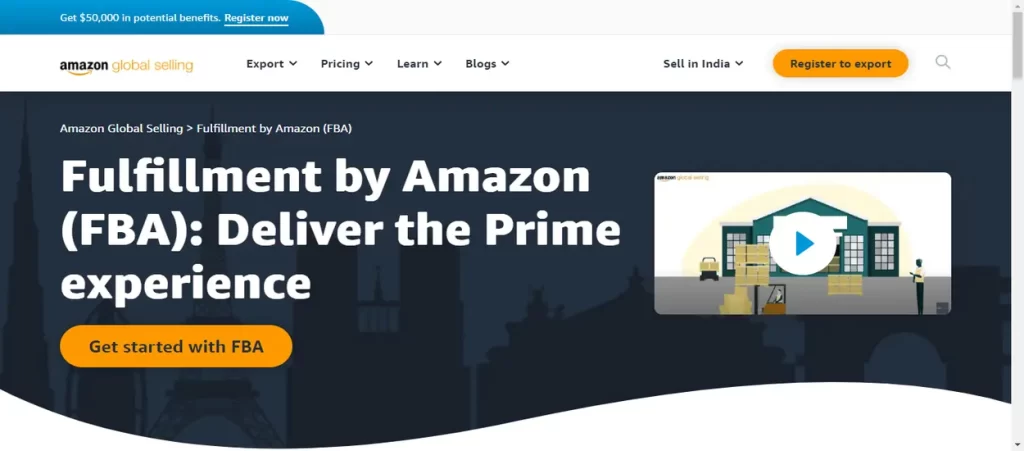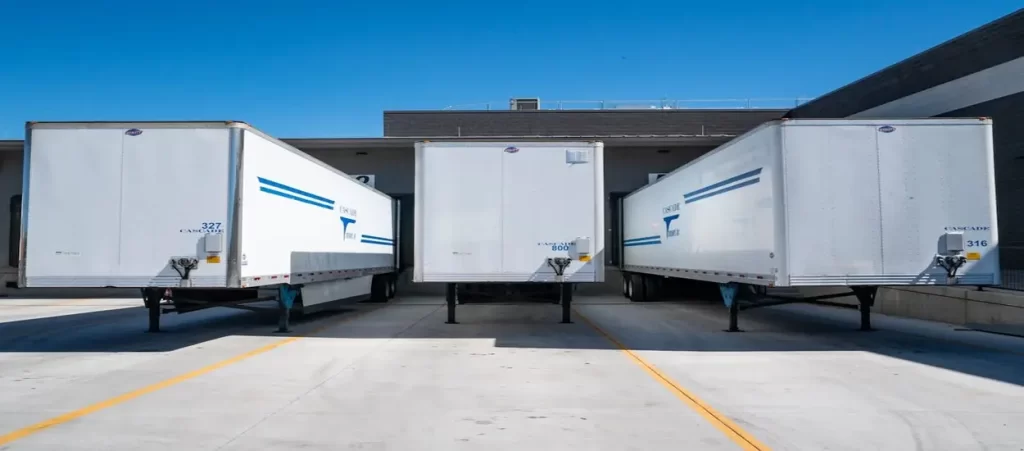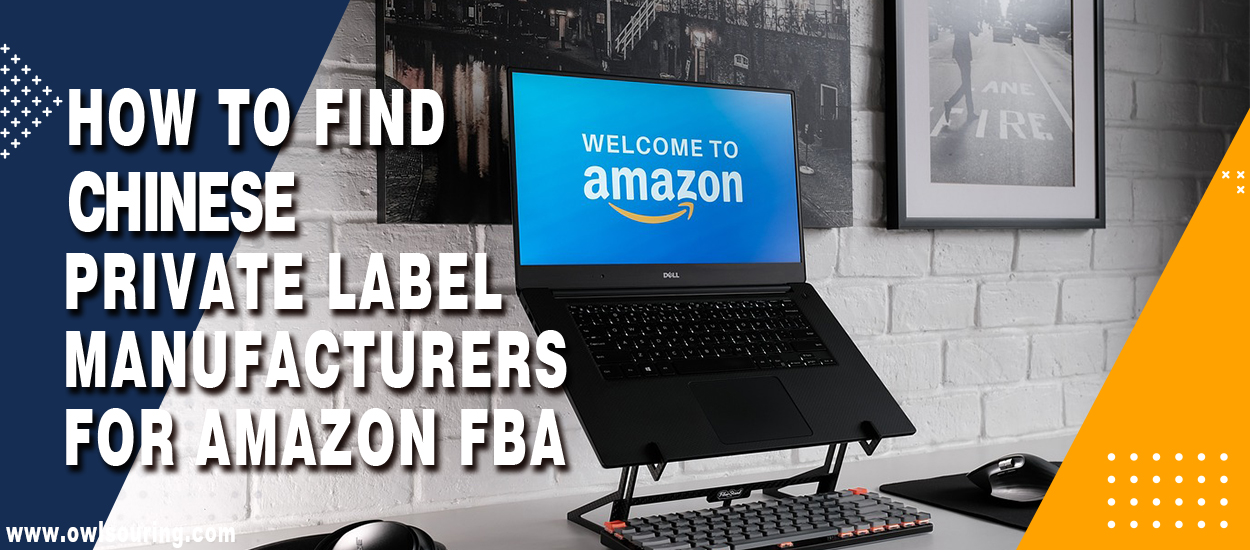Today’s competitive market favours private-label manufacturing for brand-building. It involves a company producing goods that are sold under another company’s brand name.
Amazon FBA vendors can offer unique products this way. They get to avoid the hassle and cost of manufacturing these items. Manufacturer reliability, consistency, and quality determine a private label company’s success. It is where Chinese private label manufacturers come into play.
China is a manufacturing hub with its high production capacity and low pricing. That makes it an ideal location to source Amazon FBA manufacturers. So, you must know how to find Chinese private label manufacturers for Amazon FBA.
Your goods can meet Amazon’s strict standards and ship quickly with the right partner. I will create a China private label supplier guide to help you. My post will examine how to find Chinese private-label manufacturers.
Understanding Private Labelling and Amazon FBA

Private labelling involves a merchant buying from a manufacturer. Then, they sell those goods under their brand name. Businesses may now provide distinctive products thanks to this strategy.
It eliminates the need for extensive research and development or production facilities. For example, a company might buy water bottles from a manufacturer. Then, they sell it under their own logo and packaging design.
Selling on Amazon FBA lets merchants store their items in fulfilment centres. It is what we call Fulfilment by Amazon. Amazon handles product selection, packing, and shipping after a purchase.
This approach lets businesses use Amazon’s large customer base and efficient logistics. Over 2 million individuals sell on Amazon. According to recent data, Amazon sales are above 73% from FBA providers.
Amazon FBA vendors benefit from Chinese manufacturer purchases. Nearly 30% of global manufacturing is from China. I must highlight its superior infrastructure, skilled personnel, and mass-production capability.
So, private-label product development in China is ideal. China’s affordable pricing is essential for healthy profit margins.
In 2023, more than 60% of sales in Amazon’s stores come from independent sellers—most of which are small and medium-sized businesses. US-based sellers averaged more than $250,000 in annual sales. Source
Also, Chinese manufacturers know about Amazon’s strict rules about packing and labelling. Sometimes, working with Chinese private label manufacturers may be challenging.
It’s beyond knowing how to buy from China for Amazon FBA. So, always consider concerns about language, quality control, and shipping times.
Partner with Owlsourcing for success in private labels
Owlsourcing specialises in helping businesses create branded products in China, managing the entire process right from sourcing manufacturers and supervising production to quality control and logistics.
Private label development in China holds great opportunities but involves time, research, and careful management. Owlsourcing minimises risks and streamlines the process to ensure high-quality results tailored to your brand.
Our expertise will go a long way in enabling FBA sellers on Amazon to maximise their profitability by availing them of private label products that meet market demands.
Ready to create your own branded products? Contact Owlsourcing today and give your business new wings!
FBA Processes: a Single Concise Paragraph
Amazon FBA takes care of logistics, which involves storage, packaging, and shipping directly to customers.
Packaging and labelling standards by Amazon have to be followed, using scannable barcodes, weight limits, and correct documentation for customs.
The freight options are based on the budget and timeline, with air offering speed and sea being cost-effective, while partnering with a freight forwarder guarantees compliance and smooth delivery to Amazon warehouses.
Following these steps ensures supply chain efficiency and customer satisfaction.
Steps to Identify the Right Chinese Private Label Manufacturers

Identifying the right China Amazon FBA manufacturers is vital. The following covers how to find Chinese private label manufacturers for Amazon FBA:
1) Defining Your Product Requirements
Before looking for private label China suppliers, know your product requirements. It means finding your market and giving specifics about your desired product. Also critical are quality guidelines and licenses.
Verify that the manufacturer meets certain criteria depending on the product. Jungle Scout found that 28% of Amazon sellers say product quality is a big problem. It shows how important it is to set clear quality standards.
Furthermore, consider your Minimum Order Quantities (MOQs). Chinese makers often use MOQs to ensure smooth production. Note that MOQs can vary for each product and manufacturer.
2) Researching Potential Manufacturers
It is the second step in how to find Chinese private label manufacturers for Amazon FBA. When you know what you need, start searching for potential manufacturers.
Your search might begin on online e-commerce platforms. You can buy from Alibaba or Global Sources. These platforms aid in China’s manufacturing for Amazon FBA discovery.
Also, you can attend trade fairs in China to meet manufacturers in person. Do not forget how helpful business networks and recommendations can be. Join Amazon seller boards or local e-commerce organisations for recommendations.
3) Evaluating Manufacturer Capabilities
Once you’ve found possible manufacturers, you need to consider their capabilities. First, look at their manufacturing capacity and how long it takes to get it to you.
It is very important to look over product samples. You can then judge the level of the manufacturer’s work and ensure they meet your needs.
Additionally, knowing how much experience the supplier has with Amazon FBA standards. Manufacturers with a lot of expertise know how to package and name items for Amazon.
Partner with OwlSourcing today! Let us connect you with vetted Chinese manufacturers and simplify your sourcing journey for Amazon FBA success.
Verifying a Manufacturer’s Experience with Amazon FBA
To confirm a manufacturer’s experience with Amazon FBA, request references from other FBA sellers they’ve worked with and request to see products they’ve prepared for FBA compliance.
Furthermore, review samples for compliance with Amazon’s packaging and labelling standards.
Request a detailed production workflow to ensure their familiarity with Amazon’s specific requirements, such as barcode placement and carton weight limits.
Negotiating with Chinese Manufacturers

After identifying private label suppliers in China, negotiation comes next. Here are a few pointers to help you negotiate well:
1) Understanding Chinese business culture
Chinese business culture puts a lot of value on relationships and keeping good ties. Understanding your potential manufacturer can improve your terms and bargaining power. When dealing with China, patience is crucial.
Most times, decisions are made slowly and after rounds of conversation. So, prepare for this process, and don’t rush or put too much pressure on the manufacturer.
2) Key points to negotiate
When dealing with China Amazon FBA manufacturers, pay attention to three main points:
- pricing
- MOQ
- payment conditions
Prices matter, but the lowest isn’t always the best deal. Consider the overall cost, including delivery and quality issues.
According to a study by Supply Chain Dive, 60% of businesses choose suppliers based on price alone. However, companies looking at the total ownership cost are happier with their suppliers.
You can often talk about lowering the MOQ if you’re a new customer. Ask for a smaller MOQ for your first order. Sometimes, you may negotiate better terms with the manufacturer as you get to know them.
3) Clear communication and documentation
It is very important to communicate clearly during the discussion process. Use simple, concise language and confirm essential points in writing. If cultural hurdles are significant, consider using a translator.
Ensure all decisions are written down in an official contract. It should have full information about the product. It comprises its price, the MOQ, payment terms, shipping times, and more. An explicit, signed agreement can help keep everyone on the same page.
Managing Quality Control for Amazon FBA private label products
Quality control is an integral part of finding private-label products in China. It keeps buyers happy and makes sure your items meet standards. Here is some vital information to guide your quality control process:
1) Implementing quality control processes
It all starts at the factory with quality control. Give your Chinese private label manufacturers clear rules to follow. Use specifics and quality standards for the goods to find problems early on.
Factory checks must be done regularly to detect issues on time. As it turns out, 65% of businesses say aggressive quality management cuts costs by 10% to 40%.
For every product, create a checklist that includes all essential functions and features. You might also want to use statistical process control (SPC) charts. They help you find trends and track quality over time.
2) Third-party inspection services
Third-party quality inspection in China looks at things without bias. Hence, they can see things you might not. Usually, these services cost between 2% and 3% of the value of your item.
In the long run, they’ll save you a lot more. Pick a third-party inspection service with a reliable reputation.
Find out how much experience they have with your type of goods. Good inspectors know the norms and most usual problems in their field.
Most importantly, clear guidelines for inspection should be set. Pick out the acceptable quality limits (AQLs). Third-party inspection services will know how strict to be based on this.
Note: Third-party inspectors are invaluable, but delays can occur due to miscommunication. Use bilingual contracts and schedule regular check-ins to ensure seamless collaboration.
3) Dealing with defects and returns
Some flaws may not be seen even if there is good quality control. So, make a clear plan for how to handle issues and returns.
Quickly solve customer problems on defects and returns. If it’s easy to return items, about 92% of customers will buy from you again.
Regularly look at return info and find patterns in the flaws so you can focus on making things better.
Make sure you have a clear return policy for big problems. If you’re using FBA, make sure it follows Amazon’s rules.
Defect and Return Policy: Examples of Resolution Policies
If defects are found in third-party inspections, there should be a pre-arranged resolution policy. Examples include:
- Immediate Replacement: The supplier must replace defective goods before shipment.
- Discounted Pricing: Agree on a price reduction in proportion to the defect rate.
- Compensation Agreements: Create a reimbursement plan, like crediting future orders or partial refunds for minor defects.
Shipping and Logistics Considerations for Amazon FBA

Mastering shipping and logistics is crucial for Amazon FBA sellers. Below are shipping and logistics considerations for Amazon FBA:
1) Understanding Amazon FBA Requirements
Know that Amazon has serious FBA requirements when working with Chinese producers. Adherence to these rules prevents you from making mistakes that will cost you money.
First, pay attention to the boxes. Use strong boxes that can handle tough situations.
Every item needs its scannable barcode. It helps Amazon keep correct records of your stock. Labelling is essential.
A sticker on each box should have your seller ID and shipping information. Ask Amazon to help you name it if you’re not sure. It costs a bit more but ensures compliance.
2) Choosing the Right Shipping Method
Your chosen China shipping service affects cost and speed. Sea freight is often the cheapest for foreign suppliers.
Standard shipment takes 30-40 days. But air freight is faster but more expensive. It better suits items of significant worth or urgency.
A freight forwarder might be helpful. Besides coordinating shipments, they manage customs documentation.
Doing so cuts down on wasted time and errors. Compare shipping companies for domestic shipments.
You may use Amazon with UPS, FedEx, and USPS. Remember that faster shipments result in higher rankings on Amazon.
3) Managing Customs and Import Duties
Some documents and duties are associated with shipping private-label products from China. Acknowledge what you’re responsible for and pay the required import tariffs and taxes.
If you’re not familiar with importing, contact a customs broker. They ensure compliance and handle complex documentation.
On average, brokers will take 0.5-1% of the value of your shipment as their fee.
Notably, consider using an IOR (Importer of Record) service.
A local business entity is not required to import products using this method. It’s primarily helpful when peddling products in uncharted territories.
Common Pitfalls When Sourcing Private-Label Products from China
1. Poor Quality: Inconsistent product quality can result in poor reviews and returns.
- Mitigation: Utilise third-party inspectors and implement strict quality control guidelines, including statistical process control (SPC).
2. Intellectual Property Risks: Suppliers may replicate your product or design.
- Mitigation: Use clear NDAs and work with reputable manufacturers.
3. Tariff Risks: Fluctuating tariffs affect profitability.
- Mitigation: Monitor trade policies and negotiate incoterms such as DDP (Delivered Duty Paid) to minimise unexpected costs.
4. Communication Barriers: Misunderstanding of requirements may lead to delays in production or production errors.
- Mitigation: Bilingual contracts and clear, documented communication.
5. Logistical Delays: Shipping disruptions result in stockouts.
- Mitigation: Hold buffer stock and use freight forwarders for efficient customs clearance.
Read More:
- Custom Packaging for Amazon FBA Private Label Product
- Amazon FBA Sourcing Agent in China
- Where to Buy Products to Sell on Amazon?
- Everything You Must Know About White Label Products China!
- How to Start Selling Private Label Products on Amazon or Shopify
Final Thoughts!
Amazon FBA sellers may greatly benefit from Amazon FBA private label sourcing. For the process to work, you must be good at planning, quality control, and negotiating.
Some obstacles surround how to find Chinese private label manufacturers for Amazon FBA. One of the problems is that there may be language or cultural barriers.
However, the benefits of low prices and large production capacity are more than enough to compensate for them. Successful ventures need reliable partners, open communication, and strict quality control.
So, start today! Simplify the sourcing process and ensure you partner with the best manufacturers.
Let OwlSourcing guide you in this. Our team specialises in connecting Amazon FBA sellers with vetted Chinese manufacturers. We handle everything from product sourcing to quality control in China.


